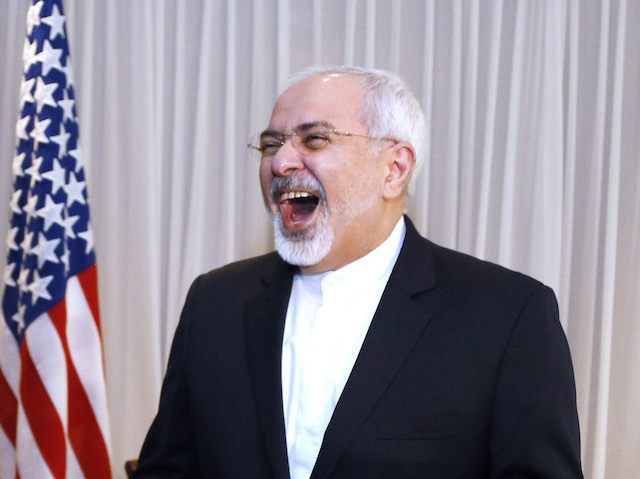Implementation Day arrived January 16. From now on, the Iran deal is a geopolitical reality–until it expires in about a decade, of course.
Iran will place its nuclear program in a state of suspended animation, and the U.S. will provide Iran over $100 billion in sanctions relief. President Barack Obama said Sunday that “we’re seeing what’s possible with strong American diplomacy.”
Actually, we’re seeing what’s possible when America surrenders.
In the six months since the deal was approved by the negotiating parties, and formalized by UN Security Council Resolution 2231, Iran has managed to win even more concessions. It recently tested nuclear-capable ballistic missiles, in apparent violation of the UN’s version of the deal, but not the original agreement. It has continued its wars in the region, from Syria to Yemen, and has humiliated the United States, most recently by arresting ten sailors last week.
In short, what the deal has actually accomplished is to shift the balance of power in the Middle East away from U.S. allies, such as Israel and Saudi Arabia, and toward the Iranian regime, which has served as the inspiration for, and sponsor of, Islamist terrorist groups–both Shia and Sunni–for nearly four decades.
That is not something that can be reversed easily–not after $100 billion dollars, plus extras, have entered Iranian coffers and sanctions are gone.
Sen. Ted Cruz (R-TX), among others, promised to cancel the deal: “If I am elected president, on the very first day in office I will rip to shreds this catastrophic Iranian nuclear deal,” he said in September.
Donald Trump took a more cautious approach, saying the deal would be impossible to reverse. He added, however: “I would police that contract so tough that they don’t have a chance. As bad as the contract is, I will be so tough on that contract.”
The failure of the Obama administration to police the basic terms of the Iran deal–as well as to defend the Geneva Convention rights of captive U.S. sailors, or to stop Iran from expanding its ballistic technology–shows the huge gap in Obama’s basic commitment to holding Iran to its commitments. The belated application of sanctions to Iranian companies involved in the missile program, delayed to allow a lopsided prisoner swap, is a paltry exception.
Contrary to what Obama, and his optimistic supporters in the media, pretend, there has been no breakthrough in U.S.-Iran relations. The regime is more tyrannical than ever, and just as hostile.
What this entire episode–and, really, this entire presidency–has illustrated is the fickle nature of American support. Iran knows it has not won a long-term ally. It is racing against the clock of Obama’s presidency. That is when the real test of diplomacy begins.

COMMENTS
Please let us know if you're having issues with commenting.